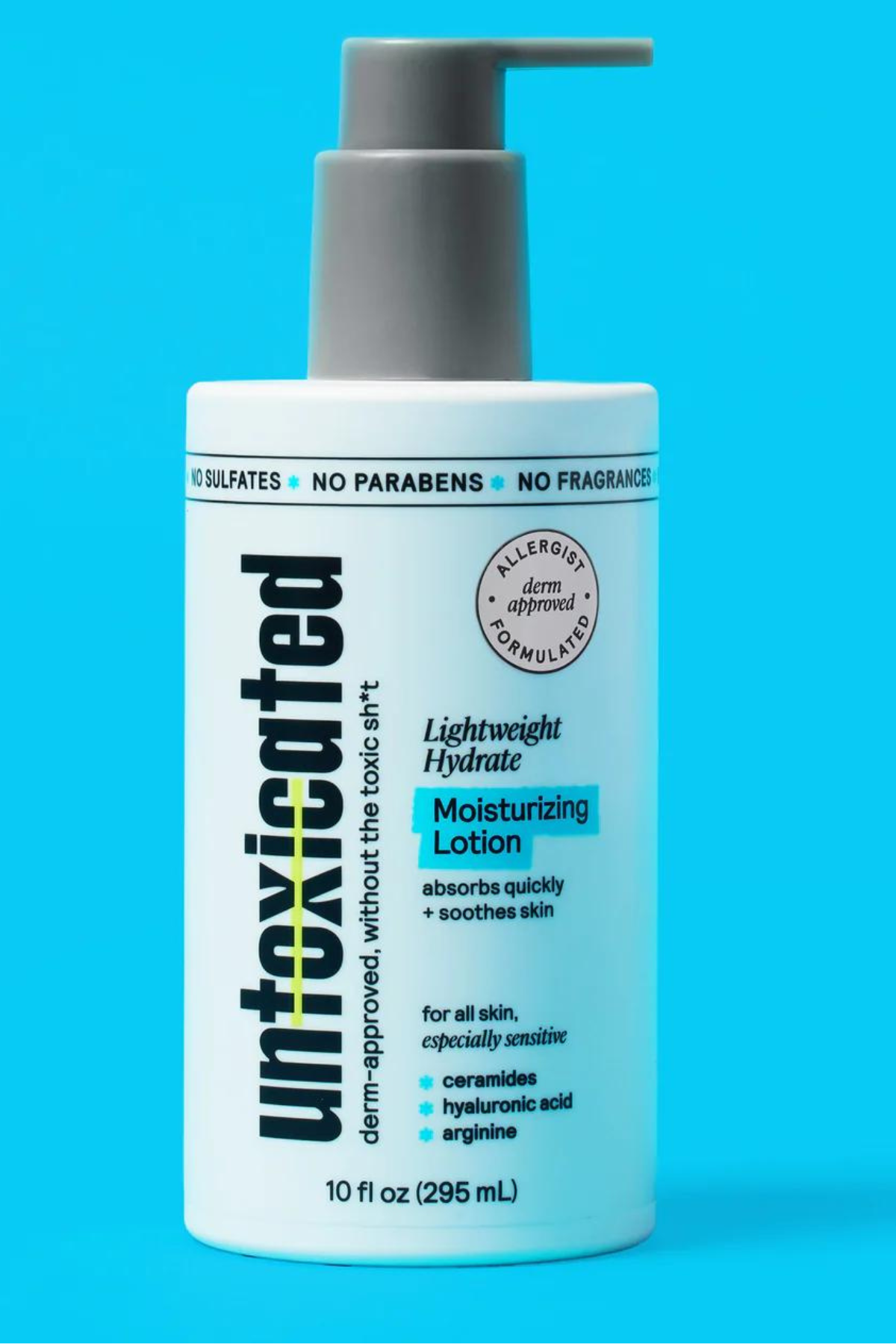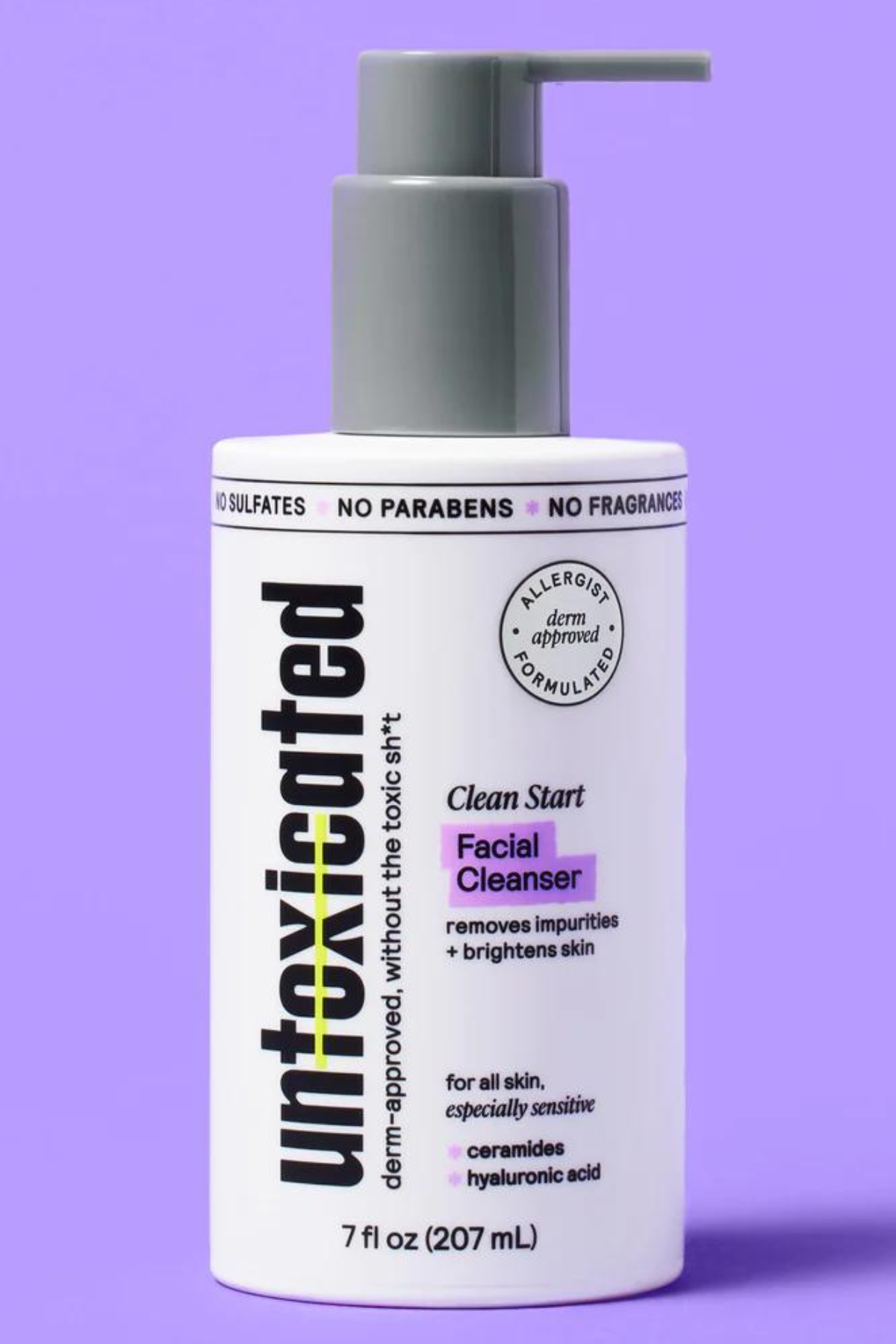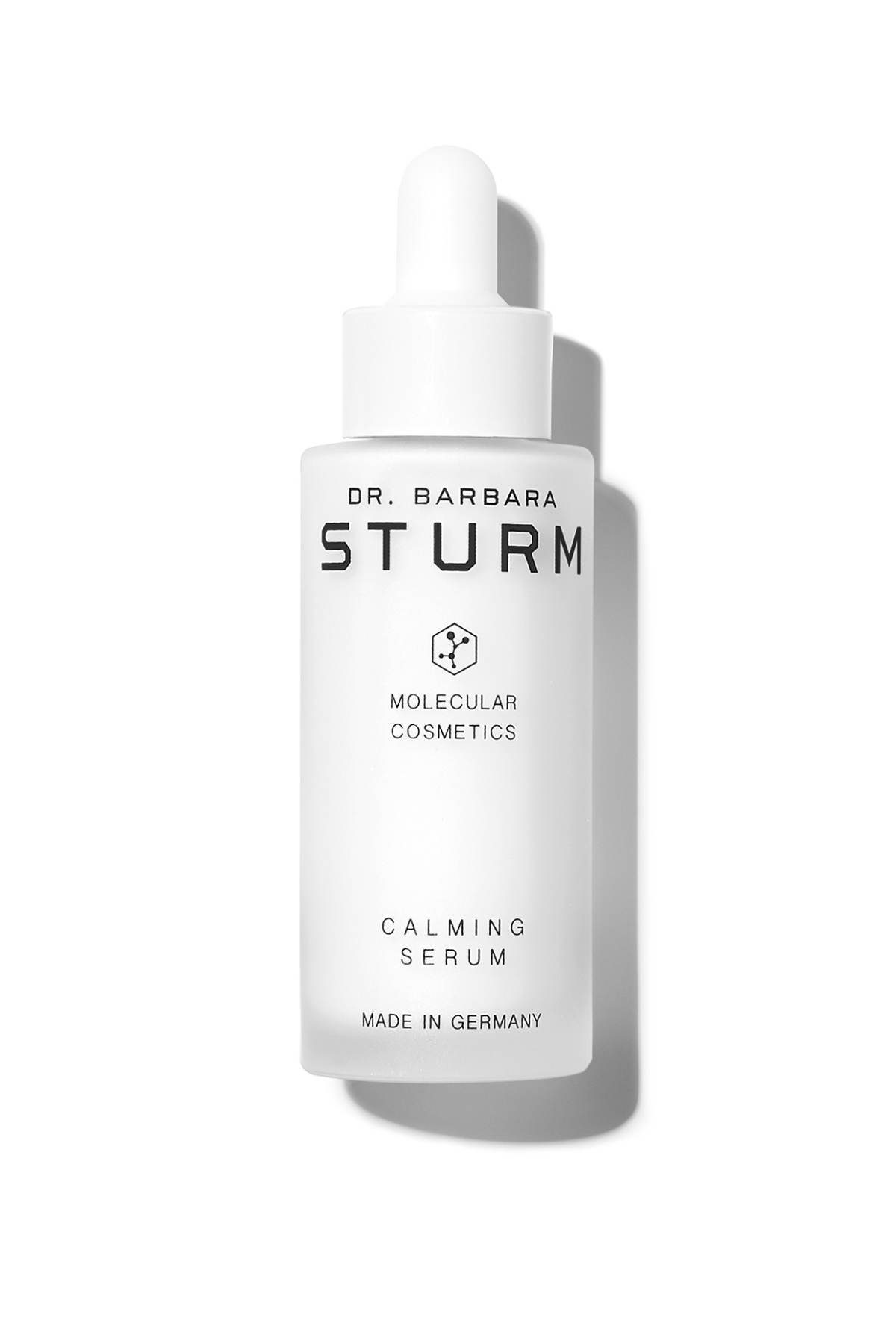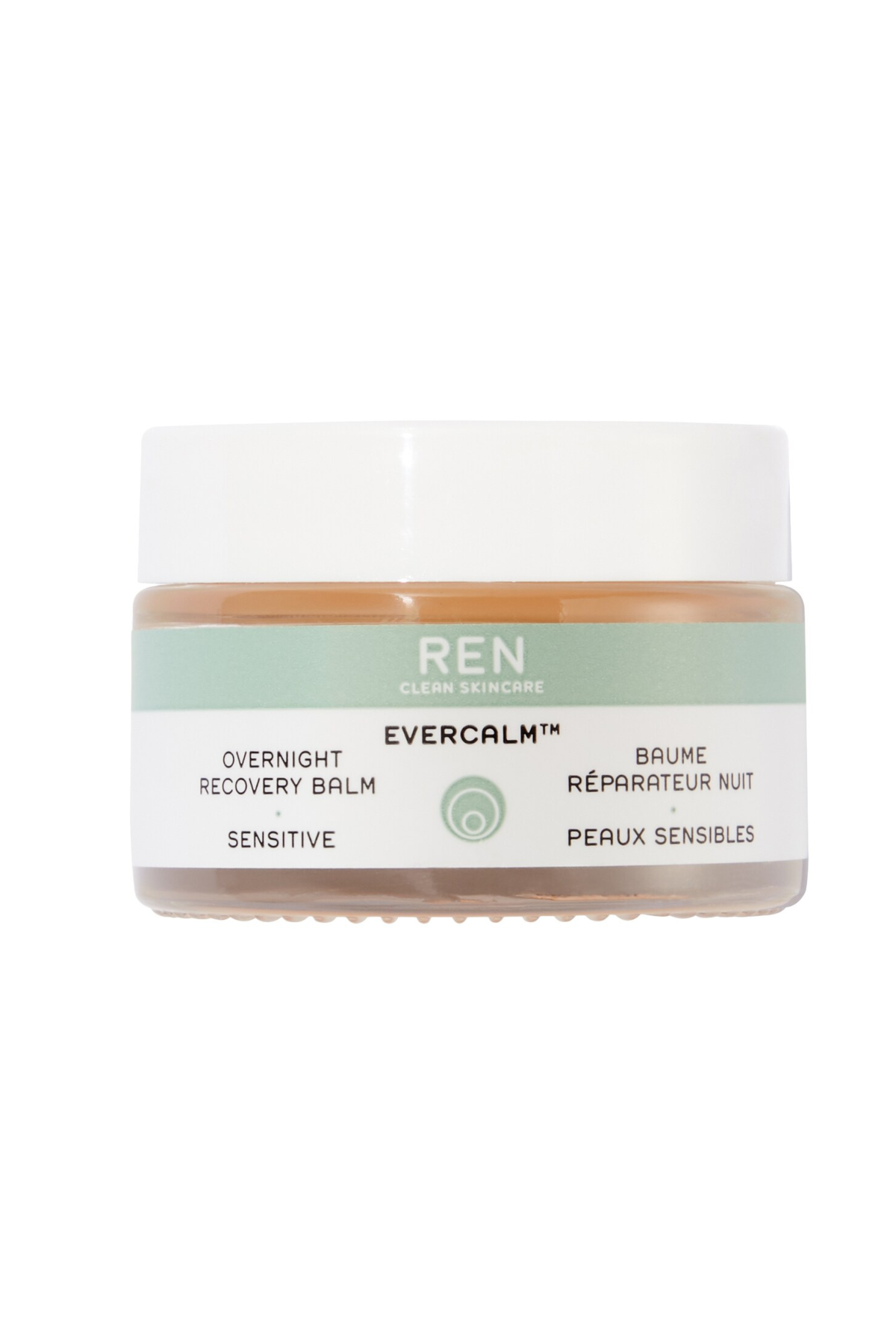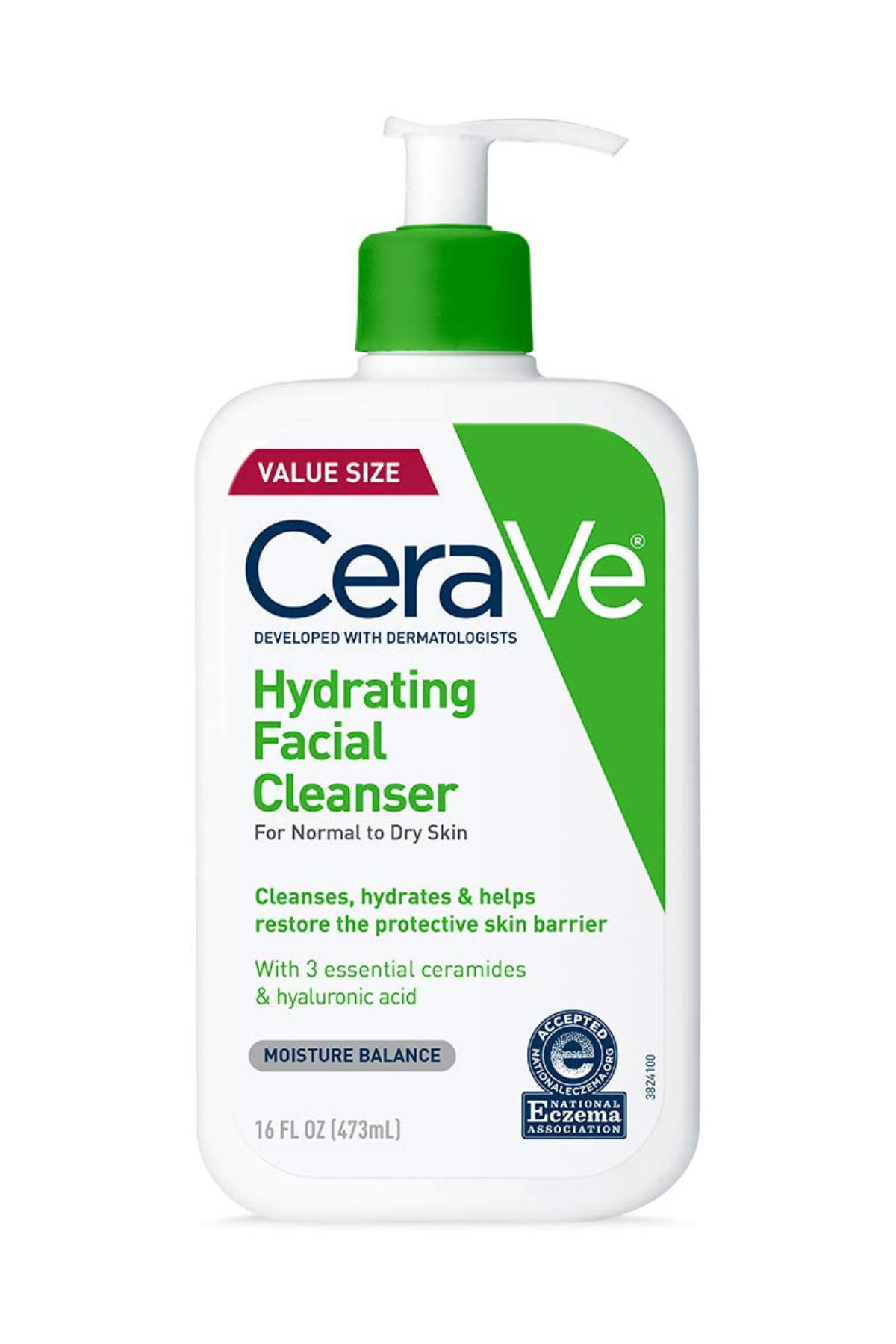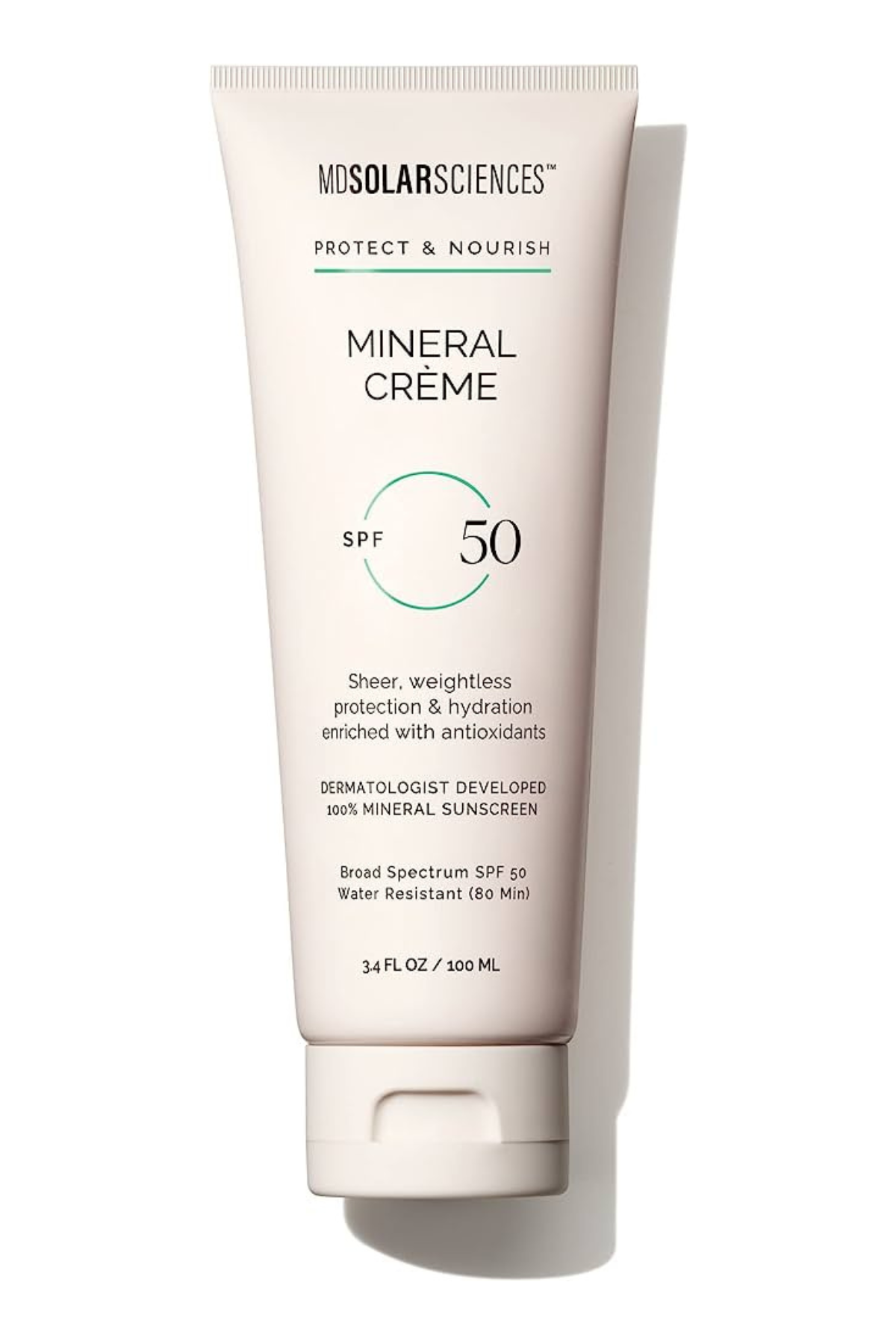10 Skincare Ingredients to Avoid If You Have Sensitive Skin, According to Experts
Alcohol is enemy number one.
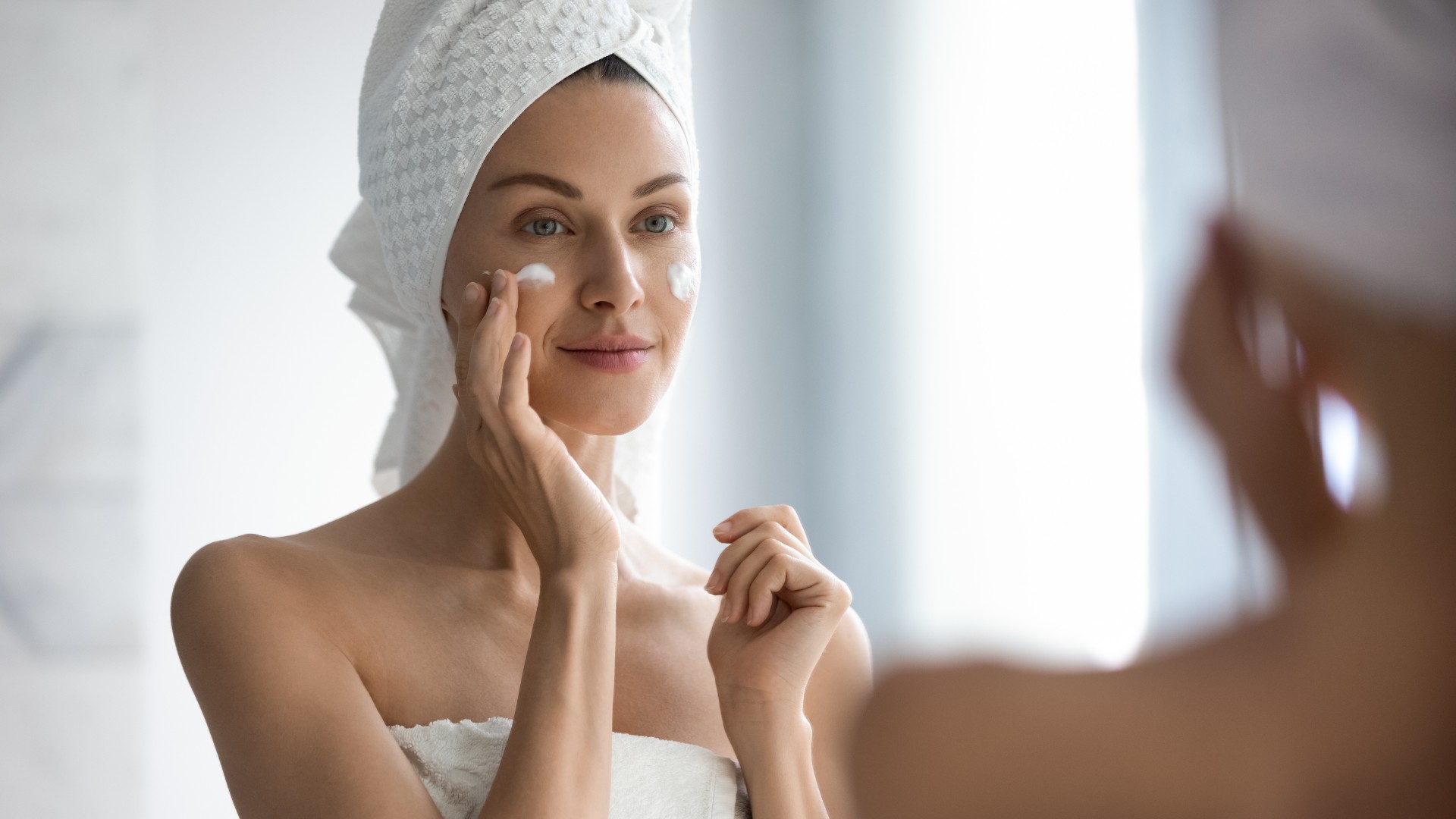

I am the poster child for sensitive skin. Seriously. One wrong ingredient can send my skin into a rash-fueled, stinging spiral or bring about a nasty bout of atopic dermatitis. To prevent such a fiasco, I’ve become an ingredient connoisseur. Show me an INCI list and I’ll be able to say, with the utmost authority, if a product is a skin reaction in the making or sensitive skin-approved. My priorities go as follows: Maintain a healthy skin barrier at all costs, keep hydration high, and decrease inflammation.
“Sensitive skin is caused by a compromised skin barrier, which is the outermost layer that protects the skin,” explains Dr. Martin Smith, a double board-certified allergist and immunologist and the founder of Untoxicated, a skincare brand formulated without 128 allergens. “These people can experience stinging, itching, and burning, or see redness, dryness, bumps, hives, and rashes after applying cosmetic and personal care products."
If you happen to share my sensitive skin status (70 percent of people worldwide do!) and want to know what ingredients to avoid (think: the blacklist, the no-gos), I urge you to listen up. I’ve had countless conversations with board-certified dermatologists and allergists on a mission to compile a handy little guide to keep by our sides while we shop for sensitive skin-approved skincare.
Do I Have Sensitive Skin?
More people have sensitive skin today than ever before, so it’s surprisingly likely you fall into the category. If you have hyper-sensitive skin, you’ll probably know it the second you go to apply a risky product to your face. “Sensitive skin is generally characterized by the experience of unpleasant sensations like stinging, burning, pain, or tingling without any visible clinical signs,” explains board-certified dermatologist Dr. Dustin Portela. “It’s a condition where the skin gets easily irritated by various elements such as skincare products, environmental, or physical factors.” A reaction can be spiked by something as uncontrollable as stress or a hormonal change, but also has the ability to be brought about by common irritants in cosmetics.
The Difference Between Sensitive, Sensitized, and Allergic Skin
A sensitive skin reaction is a feeling (think: burning, stinging, tingling), but an allergic reaction to a product will produce visible symptoms (think: bumps, hives, rashes). While the two don’t have to be connected, it’s pretty damn likely they are—sensitive skin is a predisposition for allergic skin. “A compromised skin barrier leads to inflammation which causes increased absorption of irritants and allergens into the skin, which causes sensitization or allergies to develop,” explains Dr. Martin. “People with sensitive skin are five times more likely to develop skin allergies.” The kicker? An allergy can develop with a product that you’ve been A-OK using for years.
You’ll know if you’ve fallen into allergy territory if you spot dermatitis in any area you used the product in question. “In a mild form, dermatitis can simply show up as skin dryness and redness. Moderate reactions can be red and peeling,and severe reactions can present as a chemical burn,” says Dr. Martin. “You may also witness itchy spots, scaly patches, or in extreme cases, a blistering rash.”
Ingredients to Avoid for Sensitive Skin
“Everyone’s skin chemistry is different and even the most gentle products on the market contain ingredients that may irritate some,” says Dr. Portela. Unfortunately, even products that have “Great for sensitive skin!” plastered across their label might contain a common irritate. Use this list as your guide for what to avoid, but if your skin remains a mystery and you can seem to crack the code, always consult your dermatologist or a specialized allergist for further testing.
Stay In The Know
Get exclusive access to fashion and beauty trends, hot-off-the-press celebrity news, and more.
Alcohol
This sneaky ingredient is in wayyyy more products than you might think. And, surprise, surprise: It’s not so great for sensitive skin for pretty obvious reasons. “It can provoke irritation, potentially worsening existing skin conditions and increasing sensitivity over time. Certain types of alcohol (such as denatured alcohol or ethanol) can remove the skin's natural oils and disrupt its barrier function, leaving it more susceptible to damage and infection.”
Fragrance
Fragrance, both natural and synthetic variations, stands right next to alcohol on the no-no list. “This is the most common skincare allergen,” says Dr. Martin. “Because of their small chemical structures, fragrances can easily bind to proteins in the skin, and form a complex that is highly allergenic.” A handful of “sensitive skin” products do contain fragrance despite this fact, so make sure you do a legitimate scan of the INCI list.
If you love the sensorial effect fragrance adds to a product, you’ll want to do a patch test before slathering a product on your face. Test a small dot on the back of your wrist and give yourself 48 hours to see how you react. If your skin looks clear in two days time, you should be good to go.
Benzoyl Peroxide
This isn’t a hard no, but it’s a proceed-with-caution ingredient. “It can cause dryness, redness, and peeling, making any skin sensitivities much worse,” says Dr. Portela. That said, if you have acne-prone skin (yes, you can be sensitive and acne-prone), using benzoyl peroxide might be your best bet for treatment. Should that be the case, make sure you opt for a formula with a lower percentage (four percent is a good safe spot). As always, consult with your dermatologist.
Glycolic Acid
Sensitive skin gets along best with hydrating, restorative ingredients. Any time you’re dealing with acids and exfoliants, it’s tricky territory. Cut to: “Glycolic acid can be irritating; personally don’t advise those with highly sensitive skin to use any form of glycolic acid, whether in topical products, home-use peeling pads, or office-based peel procedures,” says Dr. Portela.
Balsam of Peru
This isn’t a super common ingredient, but it does exist in a handful of skincare products, fragrances, and toiletries. “This ingredient has a sweet cinnamon smell to it, and is similar in structure to an essential oil,” says Dr. Martin. In reality though, it’s a combination of five chemicals, all of which are highly allergenic.
Parabens
Avoid paraben for a handful of reasons. Studies have shown that parabens can act like estrogen in the body, and therefore be hormone disruptor or potential carcinogen. Historically, it was thought they were a big allergen, but according to Dr. Martin, they’re a weaker allergen than we once thought. Still, it’s best to play it safe.
Vitamin E
Normally, vitamins are a great addition to skincare. Vitamin E particularly is loved for its antioxidant properties. It can protect your skin against free radicals, help with dryness, and even be a powerful anti-aging ingredient. By and large, it’s a great ingredient. But (you knew that was coming) it has been known to cause allergic reactions and irritate sensitive or acne-prone skin, so best to steer clear. Editor’s note: It may be listed as vitamin E or tocopherol on an INCI list.
Preservatives
It doesn’t sound all so great to have preservatives in your skincare and rest assured: It’s not. A handful of preservatives actually break down to release formaldehyde in the skin, which can then lead to a skin allergy. Unfortunately, preservatives can be harder to identify than one would hope. Some common ones to keep an eye out for are the following: Quaternium-15, DMDM Hydantoin, imidazolidinyl urea, diazolidinyl urea, and Methylchloroisothiazolinone (MCI), which is commonly found in makeup wipes, some shampoos, and even several face cleansers.
Propylene Glycol
Eczema sufferers: listen up. Propylene glycol is an extra no-no for you; it can lead to contact dermatitis. It’s a fairly common ingredient though, especially in gentle skin cleansers, so do a thorough double check before washing your face.
Cocamidopropyl Betaine
“This is a cleanser and foam enhancer, which is made up of propylene glycol and fatty acids from coconuts,” explains Dr. Martin. That in mind, it’s probably best for sensitive skin types to play it safe and stick to gel or cream formulations.
Chemical Sunscreens
First and foremost: Always wear sunscreen. However, if your skin is on the sensitive side, your best bet is to reach for a mineral formula. “They usually incorporate mineral filters such as zinc oxide and titanium dioxide, which are generally milder than chemical alternatives. These sunscreens also contain non-inflammatory active ingredients that offer effective, broad-spectrum sun protection.”
The Best Products for Sensitive Skin
If you do have sensitive skin, all hope is not lost. There are so many great products on the market that will help rebuild your skin barrier, calm irritation, and keep your face hydrated. Take niacinamide for example. “This ingredient effectively reduces redness and inflammation, offering relief to sensitive and dry skin types,” says Dr. Portela. He adds that hyaluronic acid and ceramides are also beneficial, as they both offer hydration and strength to the skin barrier.
Meet the Experts

Dr. Martin Smith is an allergist-immunologist in Beachwood, Ohio and is affiliated with multiple hospitals in the area, including Cleveland Clinic and Cleveland Clinic Medina Hospital. He received his medical degree from University of Pretoria Faculty of Medicine.

Dustin Portela, DO, is a Board Certified Dermatologist and Dermatologic Surgeon. He is certified through the American Board of Dermatology, the largest national group of board certified dermatologists.
Dr. Portela is an Idaho native having grown up in Southeast Idaho. His professional interests include skin cancer surgery and facial reconstruction, skin cancer prevention, complex medical dermatology and wound healing.
Dr. Portela has lectured at national dermatology meetings and has published articles in several medical journals. Dr. Portela graduated with an Honors-Bachelor of Science in Zoology from Idaho State University. He received his medical degree at Des Moines University in Des Moines, IA graduating among the top of his class and being recognized with the Award for Excellence in Physiology. Following medical school Dr. Portela completed his internship through Michigan State University at the Oakwood Southshore Hospital. His residency training in Dermatology and Cutaneous Surgery was completed at Michigan State University through the Beaumont Trenton Hospital in Trenton, Michigan, where he also received his training in Mohs micrographic surgery and was recognized with the Excellence in Dermatologic Surgery Award.
Dr. Portela’s professional memberships include the American Academy of Dermatology, American Society for Dermatologic Surgery, American Society for Mohs Surgery, and the American Osteopathic College of Dermatology. Dr. Portela enjoys all aspects of dermatology, from skin cancer treatment and post-surgical reconstruction to cosmetic enhancement, as well as the care of both adult and pediatric patients. His goal is to provide the highest quality, patient-centered care available.

Samantha Holender is the Senior Beauty Editor at Marie Claire, where she reports on the best new launches, dives into the science behind skincare, and shares the breakdown on the latest and greatest trends in the beauty space. She's studied up on every ingredient you'll find on INCI list and is constantly in search of the world's glowiest makeup products. She's constantly tracking the biggest nail and hair trends to pop up in the beauty space, going backstage during fashion weeks, tracking celebrity looks, and constantly talking to celebrity hair stylists, nail artists, and makeup artists. Prior to joining the team, she worked as Us Weekly’s Beauty and Style Editor, where she stayed on the pulse of pop culture and broke down celebrity beauty routines, hair transformations, and red carpet looks. Her words have also appeared on Popsugar, Makeup.com, Skincare.com, Delish.com, and Philadelphia Wedding. Samantha also serves as a board member for the American Society of Magazine Editors (ASME). She first joined the organization in 2018, when she worked as an editorial intern at Food Network Magazine and Pioneer Woman Magazine. Samantha has a degree in Journalism and Mass Communications from The George Washington University’s School of Media and Public Affairs. While at GWU, she was a founding member of the school’s HerCampus chapter and served as its President for four years. When she’s not deep in the beauty closet or swatching eyeshadows, you can find her obsessing over Real Housewives and all things Bravo. Keep up with her on Instagram @samholender.
-
 Tyla's Coachella Outfit Pairs Dolce & Gabbana With Pandora
Tyla's Coachella Outfit Pairs Dolce & Gabbana With PandoraThe singer wore a gold version of the crystal bra made famous by Aaliyah.
By Amy Mackelden Published
-
 How Kate Middleton Is Influencing George's Fashion Choices
How Kate Middleton Is Influencing George's Fashion ChoicesThe future king's smart blazer is straight out of Princess Kate's style playbook.
By Amy Mackelden Published
-
 King Charles "Couldn't" Meet Prince Harry During U.K. Visit
King Charles "Couldn't" Meet Prince Harry During U.K. Visit"It could actually bring down a court case."
By Amy Mackelden Published
